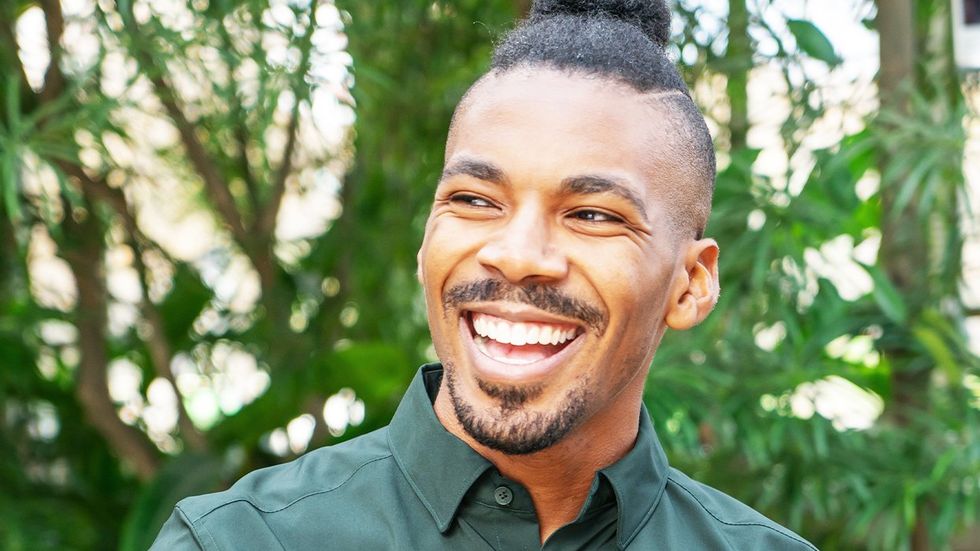Why I thought loving white men was saferand what it took to love myself instead
Growing up in the South, I observed the way white boys moved. They were happier and lived life with a bit more than I had. More freedom. More smiles. More room to mess up, be loud, and take up space.The moments seemed small at the time, but they stacked up fast, telling the same story over and over: white kids and Black kids live by different rules. Like one Christmas, I unwrapped a toy gun; my mom took one look and quietly took it away. No explanation needed. I already knew the danger of being caught in public with a toy gun.A police officer will think once and shoot twice.Over and over, I heard the worn refrain: "You have to work twice as hard to get half as far." What they didn't saywhat they didn't need to saywas that being white didn't come with the same warnings. The message was plain enough in the silences, the looks, the way my moms voice tightened when I left the house. Even the compliments I got felt like little reminders that I was an exception to some rule: "You're so well-spoken for a Black kid." Or, "You act white." As if being articulate, joyful, or innocent was some rare, borrowed thing for someone like me.Like excellence and ease belonged to someone else.Then there was my next-door neighbor and childhood playmate, Dylan. Trouble seemed to find him every other week, but it never seemed to stick to him. All it took was an adult catching a glimpse of those bright eyes and suddenly, whatever he'd done was already forgiven, forgotten, wiped clean. I wanted that kind of power: the kind that lets crowds of white kids flip cars and light fires after a Super Bowl win and still get called "rowdy," not criminals. The kind that means some families get to evacuate safely when a Category 5 hurricane hits, breaking levees, while others are left floating behind.The kind that kept Freddie Mae's hands off some houses in 2008, and safe from foreclosure.I remember being in middle school, actually praying I'd be white. I told God that if He let me wake up white, I swear I'd use that power for good. And that same boy would flinch at his own skin after an afternoon in the sun darkened it.That's how it happens. You start wanting whiteness without even meaning to. I watched the world soften for white boys, watched doors swing open and trouble slide right off them, and I wanted some of that softness for myself. I wanted to be seen as worthy and beautiful, without having to wrestle for it every step of the way.So, when I started dating, I told myself I was open to anyone and kept up the story that attraction was just a feeling. But the truth? My numbers never lied. My stats always skewed white, even as I tried not to admiteven to myselfthat those same racist ideas I hated were steering my desire.I'd convinced myself that if I could get a white man to strip down for me, trust me, want me, I'd somehow beaten the system. Outsmarted racism. Outsmarted my own Blackness. But that's not how it works. And facing that truth was the hardest part.It took a wise friend to help me see what I was really doing. He told me to see people without judgment. Not "His eyes are beautiful," but "His eyes are blue." Not "He has a good complexion," but "He is white." Notice, he said, the traitsblue eyes, white skin, whateverbut don't let society's messages turn those traits into your definition of "better" or "beautiful." Learn to see people without all the extra baggage those snap judgments carry.It wasn't easy. Rewiring those old patterns felt like rewinding a cassette Id played my whole life: a familiar track looping in the background, telling me whiteness was safer, better, more desirable. Over and over, I had to catch myself and call out that voice. Both the loud one and the whisper.But now, as I approach thirty, this practice feels solid. I've filled my life with affirmations of Blackness: I read James Baldwin and bell hooks, let their words settle into the cracks left by years of doubt. I seek out Black artists and hang their work on my walls, so every time I look up, I see beauty that reflects me. I go out of my way to find films and music that center on Black love, not just survival, but also tenderness and joy. Even my original William H. Johnson Harlem Renaissance painting of sunflowers, one of his many drafts, with not a single Black object in the entire painting, still feels Black to me.And bit by bit, over the last decade, I found myself gravitating toward Black men; drawn to the strength, joy, and beauty that looks like me. I let myself fall for Black men who remind me of home, and who understand the weight you carry just moving through the world.Looking back, I realize how much of desire is shaped by what we're told is possible, and how much of adulthood is about rewriting those stories. I no longer need to chase someone else's freedom. I know what's beautiful when I see it, and I see it every day in my own reflection.Perspectives is dedicated to featuring a wide range of inspiring personal stories and impactful opinions from theLGBTQ+ community and its allies. Visit Pride.com/submit to learn more about submission guidelines. Views expressed in Perspectives stories are those of the guest writers, columnists, and editors, and do not directly represent the views of PRIDE or our parent company, equalpride.



